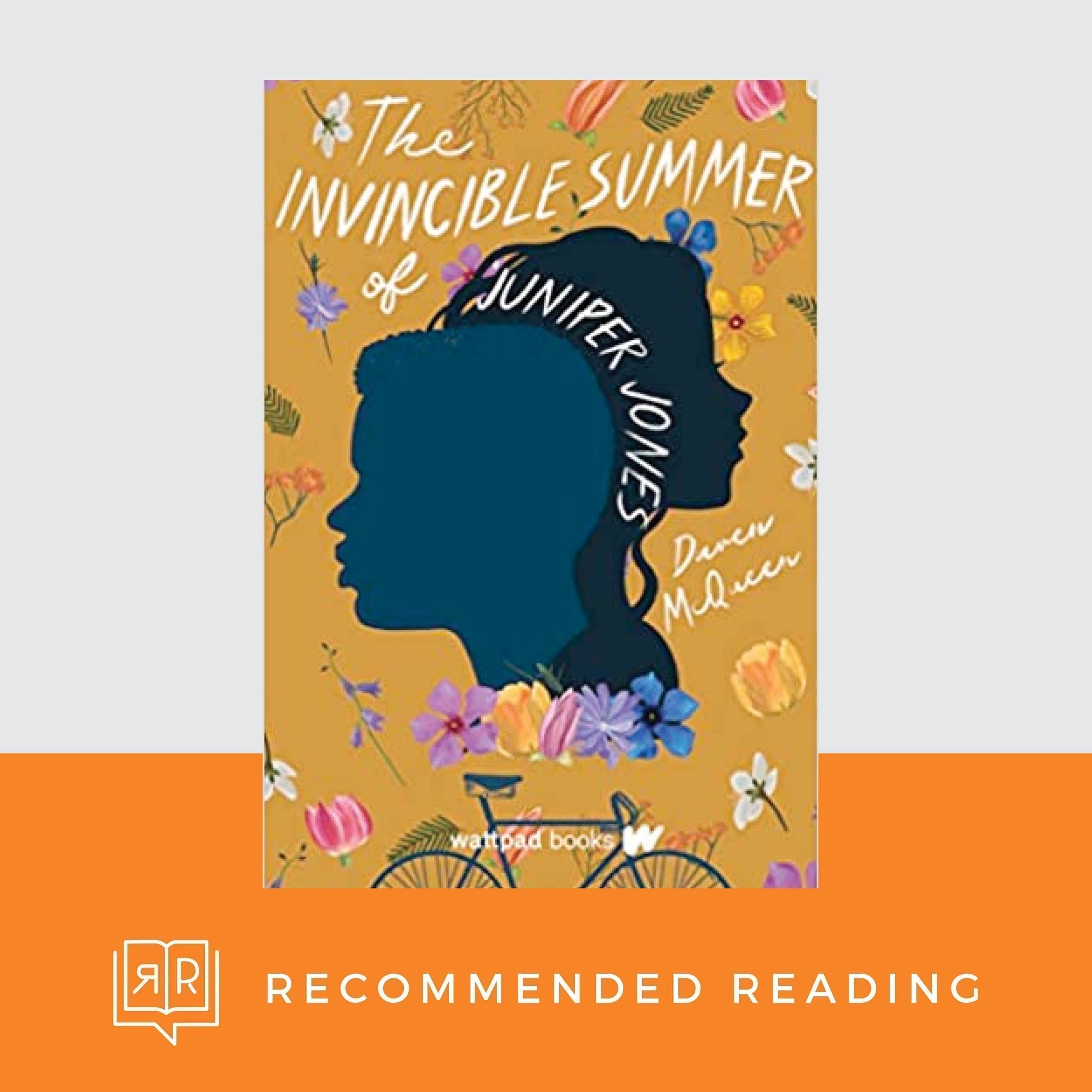Interview: Daven McQueen, Author of The Invincible Summer of Juniper Jones.

“Ethan and Juniper make a case for why allyship – productive, substantial allyship – is important for sustaining the movement. White people and non-Black people of color have to do the work of learning, supporting, and stepping back to let Black folks lead. That work is difficult and uncomfortable, as Juniper shows us with her attempts and mistakes, but it’s nonnegotiable.”
Tell us a little about The Invincible Summer of Juniper Jones
DM: The Invincible Summer of Juniper Jones centers around a biracial boy, Ethan, who is sent to spend the summer of 1955 with his aunt and uncle in a white Alabama town after getting in trouble at school. He is hated by most people in the town, but befriends a girl his age named Juniper Jones who makes Ethan her partner in a quest of adventures to have an invincible summer.
What was it like working with Kortney Morrow on the editing process of The Invincible Summer of Juniper Jones?
DM: Kortney was a super supportive and thoughtful editor – from her first notes, I knew my book was in good hands. She really helped me flesh out the setting, find meaningful research sources, and make my characters more alive. Plus, I did most of my major edits while traveling in Southeast Asia, and the fact that she still helped me make it happen even though I was half checked-out on my post-grad vacation is a testament to how great of an editor she was.
What was it like seeing the cover design by Chelsea Charles come to life?
DM: I didn’t know what to expect when I found out the cover was done, but I couldn’t be more happy with how it turned out. I’m a big fan of more minimalist covers, so I loved that Chelsea designed Ethan and Juniper as silhouettes. That, plus the flowers and the bike and the colors – it’s really just the perfect cover.
Tell us about some of the challenges Ethan Harper faces in the book and how he learns to overcome them.
DM: When Ethan arrives in Alabama, he experiences upfront and violent racism on a larger scale for the first time. He has to simultaneously figure out how to survive and resist while doing the work to understand and love his Blackness. He uses running and listening to records as ways to introspect, but he also leans on his friendship with Juniper, who is naïve at times but supports him through everything.
Tell us a bit about Juniper Jones and how her character helps Ethan through these dark times.
DM: Juniper Jones is a local, born and raised in Ellison but considered somewhat of an outcast in the town. She has a goal to make the summer amazing for both herself and Ethan, even with the racism he faces. A lot of her support of Ethan comes through her encouraging him to feel his feelings, even and especially anger. She makes herself a safe person for Ethan to process with and confide in during his time in Ellison.
Can speak about the current issues we are facing today and how elevating black voices and understanding the history of racism in this country is more important than ever.
DM: The murders of Black people that have drawn attention and outrage recently are part of a larger project of oppression that spans the entire history of this country – from now, to the Jim Crow Era where Ethan and Juniper’s story happens, to the Civil War, all the way back to when the first enslaved people were stolen from their ancestral lands. Understanding what’s happening now requires learning how racist systems from the past have been perpetuated and reconfigured for the present. Black people have been writing, speaking, and organizing around this subject for centuries and have the premier first-person perspective on the realities of racism. If the US is going to make antiracist progress, listening to and supporting Black folks has to become a habit. The more we are able to tell our stories, be compensated for our labor, and elevate our livelihoods, the closer we’ll be to something better than this.
What can readers take away from Ethan and Junipers story as it relates to what we are going through today.
DM: Ethan and Juniper make a case for why allyship – productive, substantial allyship – is important for sustaining the movement. At the end of the day, it’s not on Black folks to convince and educate. White people and non-Black people of color have to do the work of learning, supporting, and stepping back (whether symbolically or literally, like from a professional role) to let Black folks lead. That work is difficult and uncomfortable, as Juniper shows us with her attempts and mistakes, but it’s nonnegotiable.
What advice do you have for our readers?
DM: For everyone, and especially Black readers: Self-care and moments of joy are radical acts. Always but especially now, intentionally make time for this.
For non-Black readers: Read books by Black authors. Support Black artists and musicians. Buy Black-owned products from Black-owned stores. Learn from Black voices but do not burden Black individuals in your life with teaching you. Educate the non-Black people around you. Accept that you’re going to make mistakes – do so gracefully. Resist the urge to go back to “normal.” Repeat and repeat and repeat until it’s as natural as breathing.

[cm_page_title title=”Continue Reading” subtitle=” Shelf Unbound”]
Article originally Published in the August/September 2020 Issue The Historic Edition.
